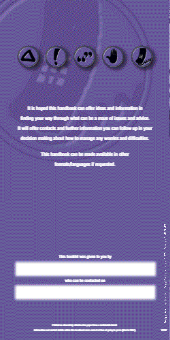 “Your Brilliant Brain: A Book about Complex Childhood Trauma” is an enlightening, beautifully illustrated book designed to help children understand the effects of complex childhood trauma on their brain and stress responses. Authored by Belinda Thomson and illustrated by Natasha Chow, this resource aims to simplify the intricate workings of the brain and trauma for young readers. It explains brain functions through engaging metaphors and illustrations, such as characterising different parts of the brain as animals with specific roles. This approach makes it easier for children to grasp how trauma affects them and introduces coping and calming strategies to mitigate toxic stress.
“Your Brilliant Brain: A Book about Complex Childhood Trauma” is an enlightening, beautifully illustrated book designed to help children understand the effects of complex childhood trauma on their brain and stress responses. Authored by Belinda Thomson and illustrated by Natasha Chow, this resource aims to simplify the intricate workings of the brain and trauma for young readers. It explains brain functions through engaging metaphors and illustrations, such as characterising different parts of the brain as animals with specific roles. This approach makes it easier for children to grasp how trauma affects them and introduces coping and calming strategies to mitigate toxic stress.
The book serves as a valuable tool for parents, carers, social workers, therapists and other professionals, providing them with a gentle way to discuss sensitive topics. It encourages reflective conversations and offers activities designed to calm the nervous system. “Your Brilliant Brain” not only educates but also empowers children affected by trauma, affirming that understanding and managing their reactions can lead to healing and resilience.
For professionals and families seeking to support children through complex trauma, this book is an essential resource, offering insights into the brain’s response to trauma and practical strategies for recovery. It underscores the importance of informed and sensitive guidance from adults, highlighting the need for regular practice of coping strategies to reduce the effects of toxic stress.
FREE PDF DOWNLOAD OF YOUR BRILLIANT BRAIN: A BOOK FOR CHILDREN/TEENS ABOUT COMPLEX CHILDHOOD TRAUMA
SIMILAR FREE RESOURCES
Parenting a Child With a Sensitive Fight Response: Guide for Parents/Carers

Parenting Children/Young People with Developmental Trauma
This resource offers a comprehensive guide on parenting children and young people affected by developmental trauma. It provides insights into how trauma impacts a child’s brain development, health, and wellbeing, outlining the importance of understanding and adapting to the unique needs of these children. The document includes practical strategies for caregivers, aiming to support healing and positive development through consistent, predictable care and the fostering of secure attachments.









